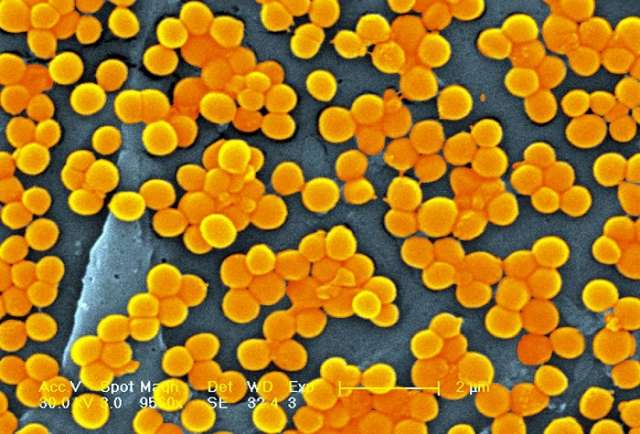The antibacterial substance, which researchers named lugdunin, was able to effectively treat infections in mice caused by Staphylococcus aureus, which can cause severe skin and wound infections, according to a study published in Nature on Wednesday. When scientists applied the antibiotic to skin lesions of the mice that had been infected, they observed “dramatic reductions” in the wounds.
Such infections have become increasingly resistant to the antibiotics commonly used to treat them, including methicillin, leading to the “super bug” known as MRSA, or methicillin-resistant Staphylococcus aureus. Scientists have said, though, that lugdunin may be able to combat more antibiotic-resistant strains, and might not be prone to develop resistance like other antibiotics, the Los Angeles Times reports.
The bacteria that produces lugdunin, Staphylococcus lugdunensis, is present in about 10% of humans, the Washington Post reports, and can also cause infections. However, according to the published findings, researchers found that only 6 percent of the 187 hospital patients they surveyed who carried the bacteria also carried Staphylococcus aureus, compared to the roughly 34 percent of hospital patients without the bacteria.
While the findings are encouraging, scientists still aren’t quite sure how lugdunin works and clinical development could be years away, according to the Post report.
More about:
















































